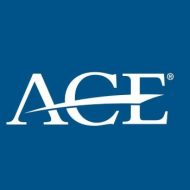Higher Education Community asks Congress to support Funding Levels needed to serve Students, Institutions

American Council on Education
June 14, 2021
ACE and nearly 50 other higher education organizations are advocating for Congress to expand federal investments in Fiscal Year 2022 to adequately support critical programs serving students, institutions, and researchers.
The organizations sent a letter Friday to the House and Senate appropriations committees identifying funding levels across a range of federal programs to accomplish these goals.
“As our nation looks to turn the corner and begin the process of rebuilding our economy after the pandemic, it is critical that existing federal investments to strengthen our workforce, advance scientific research and develop new technologies, enhance the capacities of postsecondary institutions, and promote the greatest possible opportunity for students and their families are expanded in the Fiscal Year 2022 appropriations process,” the letter stated.
Among the top priorities listed in the letter is doubling the maximum Pell Grant to $13,000, with automatic annual increases tied to the Consumer Price Index to keep funding on pace with inflation.
“As the cornerstone of federal financial aid, it is critical that Congress make the necessary investments to restore the purchasing power of the program,” the letter noted. “Doubling Pell would restore much of the purchasing power the grant had in FY 1975, when the maximum Pell award covered 78 percent of the cost of attendance at a four-year public college. It now covers just 28 percent.”
The letter also requests specific funding amounts for a number of other student financial aid programs, including Supplemental Educational Opportunity Grants, Federal Work Study, TRIO, and GEAR UP.
In addition, the higher education organizations request funding levels for a range of programs that provide support for institutions serving historically underserved populations (including Historically Black Colleges and Universities, Hispanic-Serving Institutions, Tribal Colleges and Universities, and other minority serving institutions), career and workforce training programs, specialized academic studies, and initiatives to improve completion and performance.
In asking for funding increases to federal programs and agencies such as the departments of Agriculture, Commerce, Defense, Energy, and NASA, the letter notes that, “Federal support for research and development is an essential component to maintaining the United States’ leadership in the innovation economy, allowing us to compete and succeed in the global marketplace. The research performed on college campuses provides countless benefits to the economy of our nation, and the well-being of our citizens.”








